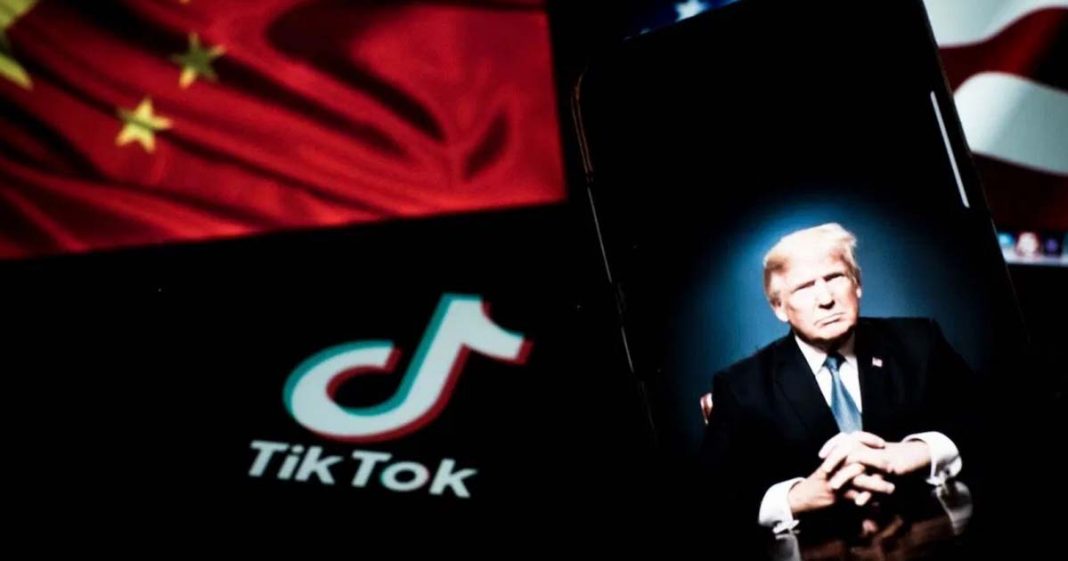U.S. President Donald Trump announced on Friday that he and Chinese President Xi Jinping had reached an understanding on the future of TikTok’s U.S. operations during a phone call. Writing on Truth Social, Trump described the exchange as “productive” and said he appreciated Xi’s approval of a deal. The arrangement, according to Trump, would transfer TikTok’s American business to a consortium of U.S. investors.
Beijing’s account was less definitive. China’s state news agency Xinhua reported only that Xi welcomed negotiations and called for “market-based solutions” that comply with Chinese laws. No explicit confirmation of any deal was provided, leaving observers uncertain about how much common ground was actually reached.
The Fate of TikTok in the U.S.
TikTok, owned by Beijing-based ByteDance, has faced years of pressure in Washington over alleged national security concerns. U.S. officials argue that Chinese law could compel ByteDance to share American user data with state authorities. Earlier this year, the Supreme Court upheld legislation requiring ByteDance to divest its U.S. operations or face a nationwide ban.
Trump has repeatedly delayed the ban’s implementation, most recently extending the deadline to December. On Friday, he told reporters that although “a deal still has to be signed,” progress had been made. He emphasized that the U.S. would maintain “very tight control” of the platform should the agreement proceed.
Read More: US comics slam ‘censorship’ after Kimmel pulled
Reports suggest that Oracle, co-founded by Trump ally Larry Ellison, is among the American firms positioned to acquire a significant stake. The most contentious issue remains TikTok’s recommendation algorithm, a powerful technology that drives content to its 170 million U.S. users. Questions persist over whether American buyers would gain access to it, license it, or develop a replacement.
Beijing’s Position and ByteDance’s Response
China has framed the matter as a commercial negotiation. Xinhua quoted Xi as insisting that talks must adhere to Chinese law and balance the interests of both sides. Beijing also urged Washington to provide a “fair and non-discriminatory” environment for Chinese companies operating in the United States.
ByteDance issued a statement thanking both leaders for their efforts and pledging to ensure TikTok remains available in the U.S. The company stopped short of confirming details of ownership changes but said it would comply with relevant laws.
Political Stakes in Washington
The debate over TikTok is not confined to the executive branch. Members of Congress, including Republicans, have warned that any arrangement retaining Chinese control over the algorithm could leave the platform vulnerable to influence from the Chinese Communist Party. John Moolenaar, chair of the House Select Committee on the CCP, cautioned that licensing the algorithm from ByteDance would be “an unacceptable risk.”
Trump’s own stance on TikTok has shifted. Once a critic of the app, he has since embraced it as part of his political outreach, even crediting the platform for boosting his electoral campaign. His evolving position highlights the tension between national security concerns and the app’s popularity among American users.
Trade Relations Beyond TikTok
The phone call also touched on broader economic issues. Trump said the two leaders discussed trade, fentanyl, and the war in Ukraine, and confirmed plans to meet at the Asia-Pacific Economic Cooperation (APEC) summit in South Korea next month. He also announced that he would visit China in early 2026, with Xi expected to travel to the U.S. “at an appropriate time.”
While the White House cast the call as evidence of constructive engagement, analysts noted that Beijing’s restrained messaging underscored persistent mistrust. The gap between the two leaders’ accounts suggests that TikTok’s fate—and the trajectory of U.S.-China relations—remains unresolved.













